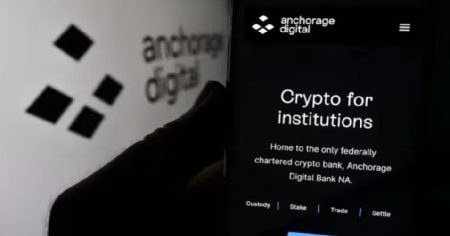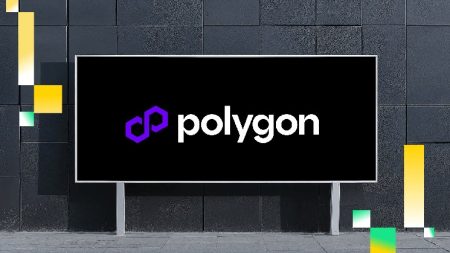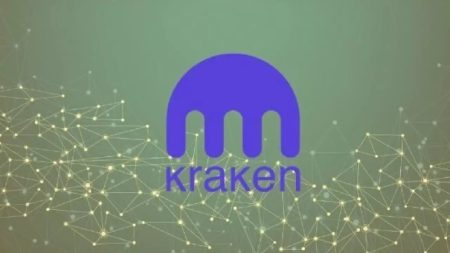Billion-Dollar Blockchain Revolution: Tokenizing Essential Housing to Democratize Real Estate Investment
Real Estate Meets Blockchain: $1 Billion Housing Initiative Launches on Solana
In a groundbreaking development set to transform both real estate investment and affordable housing accessibility, three industry leaders announced a historic partnership on September 24 to tokenize $1 billion worth of essential housing projects on the Solana blockchain. The Littlestone Company, Alpha Ledger Technologies, and Celadon Capital Markets are joining forces to convert traditional real estate ownership into digital tokens, effectively democratizing access to property investment opportunities that have historically been reserved for wealthy investors and institutions.
This innovative approach will allow investors to purchase fractional ownership in housing developments through blockchain-based tokens, dramatically lowering the entry barrier to real estate investing. “This partnership allows us to accelerate delivery of sustainable, high-quality communities for workforce families and active adults 55+, ensuring long-term occupancy and income stability despite constrained supply,” explained Peter Wasserman, CEO of The Littlestone Company, in a press release announcing the initiative. The collaboration represents one of the largest blockchain-based real estate tokenization projects to date and comes at a critical time when affordable housing shortages continue to plague communities nationwide.
Industry Veterans Converge: How Three Companies Are Transforming Real Estate Investment
The partnership leverages each company’s unique strengths to create a comprehensive tokenization ecosystem. The Littlestone Company brings nearly five decades of real estate development expertise, having financed over $1 billion in projects across the United States with a particular focus on affordable housing in underserved communities. Their portfolio includes more than 60 housing communities, positioning them as ideal candidates to identify and develop properties worthy of tokenization. By implementing blockchain technology, Littlestone aims to accelerate housing development while simultaneously expanding investment opportunities to a broader population.
Alpha Ledger Technologies will provide the technological backbone for the initiative, delivering the infrastructure necessary to tokenize real estate assets on the Solana blockchain. Their platform will transform traditional ownership rights into digital tokens, enabling revolutionary features like fractional ownership, automated rental income distribution, and potential secondary market trading. This technology effectively removes many of the liquidity constraints that have historically made real estate a difficult asset class for average investors to access.
Completing the partnership trifecta, Celadon Capital Markets will handle the critical financial structuring and regulatory compliance components. Their expertise ensures that token offerings adhere to securities regulations while providing necessary investor protections. “Our mission is to fill capital stack gaps and deliver strong returns while addressing the ‘Missing Middle’—teachers, nurses, and seniors underserved by today’s market,” said Armand Pastine, Senior Managing Director at Celadon. “Working with Littlestone and Alphaledger enables us to unlock value in essential housing through underwriting expertise and blockchain tokenization.” This multidisciplinary approach addresses the complex challenges of bringing tokenized real estate to market while ensuring regulatory compliance.
From Texas to Beyond: The Practical Implementation of Blockchain-Based Real Estate
The initial phase of this ambitious project will focus on multifamily housing developments in Texas, with plans to expand to additional markets based on early success metrics. What makes this initiative particularly revolutionary is the accessibility it creates: investors will be able to purchase ownership tokens at price points significantly lower than traditional real estate investments. While commercial real estate typically requires substantial capital outlay—often in the millions for meaningful projects—tokenization could potentially allow investments starting in the hundreds or thousands of dollars.
This dramatic shift in accessibility aligns with broader trends in the tokenized real-world asset (RWA) market, which has experienced explosive growth throughout 2025. According to CoinGecko data, the tokenized asset market has surged from $8.6 billion in January to over $64.67 billion by September—a more than 650% increase in less than a year. The movement has attracted attention from financial giants, with institutions like BlackRock and JPMorgan launching their own tokenization initiatives, further validating the approach taken by the Littlestone-Alpha Ledger-Celadon partnership.
The mechanics of the system are designed to be investor-friendly while maintaining the integrity of the underlying assets. Token holders will receive proportional rights to rental income and property appreciation, with distributions handled automatically through smart contracts. This automation reduces administrative costs while increasing transparency—investors can track performance in real-time rather than waiting for quarterly reports. Furthermore, the potential for secondary market trading could resolve one of real estate’s persistent challenges: illiquidity. Investors might eventually be able to sell their positions without complex processes or prohibitive transaction costs.
Regulatory Tailwinds: How Government Actions Are Supporting Blockchain Innovation
The timing of this partnership announcement is particularly noteworthy as it coincides with significant regulatory developments supporting blockchain innovation in traditional finance. The Commodity Futures Trading Commission (CFTC) recently unveiled initiatives to permit tokenized assets as collateral in derivatives markets, creating additional utility and legitimacy for blockchain-based assets. This regulatory evolution creates a more hospitable environment for ambitious tokenization projects like the Littlestone-Alpha Ledger-Celadon partnership.
The current administration under President Donald Trump has demonstrated increasing openness to blockchain applications in traditional finance, with various regulatory agencies providing clearer guidelines for digital assets. This regulatory clarity reduces compliance uncertainties and potential legal obstacles that might otherwise hinder such innovative projects. The partnership’s focus on essential and affordable housing also aligns with bipartisan policy objectives, potentially insulating it from political headwinds that sometimes affect blockchain initiatives in more controversial sectors.
For the Solana blockchain, this partnership represents another significant validation of its technology for real-world applications. The network’s high transaction throughput and minimal fees make it particularly well-suited for tokenization projects that may involve numerous small investors and frequent transactions. Solana has already witnessed substantial growth in its real-world asset ecosystem, with total value locked increasing by over 200% in 2025 alone. This growth trajectory appears poised to continue as more traditional assets migrate to blockchain platforms.
The Future of Real Estate: Tokenization’s Trillion-Dollar Potential
The global tokenization market’s trajectory suggests that the Littlestone-Alpha Ledger-Celadon partnership is positioned at the forefront of a transformative financial movement. Industry analysis indicates the tokenization market will reach approximately $1.24 trillion in 2025, with projections showing growth to $5.25 trillion by 2029—representing a remarkable 43.36% annual growth rate, according to recent market research. Real estate, as the world’s largest asset class valued at over $300 trillion globally, represents the most significant opportunity for tokenization at scale.
Beyond the investment benefits, this partnership addresses critical social needs by accelerating the development of essential housing. The “Missing Middle”—working professionals like teachers, healthcare workers, and seniors who earn too much for subsidized housing but too little for market-rate homes in many communities—stand to benefit tremendously from increased housing development. By creating more efficient capital formation mechanisms through tokenization, projects that might otherwise struggle to secure traditional financing can move forward, potentially helping to alleviate housing shortages in targeted communities.
Industry experts suggest that successful implementation of this $1 billion tokenization initiative could serve as a blueprint for similar projects across different real estate sectors and geographical regions. The combination of increased investment accessibility, improved liquidity, automated administration, and transparent performance tracking represents a compelling value proposition compared to traditional real estate investment structures. As this partnership demonstrates initial success, we may witness an accelerating transition of real estate capital markets toward blockchain-based solutions, fundamentally changing how properties are financed, developed, and owned across the United States and eventually worldwide.















